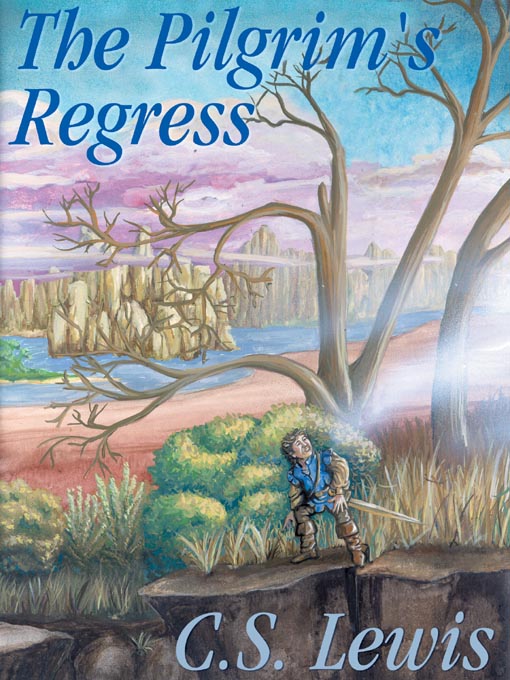
I have started reading C.S. Lewis's "Pilgrim's Regress". This is an apologetic work. The story thus far has been a very interestingly good read and loaded with allegory. It also has been enjoyable to hear Lewis's perspectives so near his "conversion". The back cover states that this was “the first book written by
C.S. Lewis after his conversion, The Pilgrim’s Regress is, in a sense, a record
of Lewis’s own search for meaning and spiritual satisfaction that eventually
led him to Christianity.” As far as I have gotten, John (the main character) has run into numerous individuals that have (as in Pilgrim's Progress) either added or retracted from his journey (his desire is finding an unnamed Island that he viewed only briefly). There have even been times that individuals have made him question about what he saw, and what his true desire was for it. Because this is an allegorical work, I have found many instances true in my own journey as well. One character named Reason (and her interaction with John) has particularly stuck out to me. John was locked away by a giant (who was called the Spirit of the Age). Reason has just aided John in an escape. She had asked the giant three riddles, and had made a deal that the giant would be destroyed if he could not answer her. The second riddle went like this:
“There was a certain man who was going to his own house and
his enemy went with him. And his house was beyond a river too swift to swim and
too deep to wade. And he could go no faster than his enemy. While he was on his
journey his wife sent to him and said, ‘you know that there is only one bridge across
the river: tell me, shall I destroy it that the enemy may not cross; or shall I
leave it standing that you may cross?’ What should this man do?”
Of course the giant could not answer such good reason (being only the Spirit of the Age). After leaving the prison, they went on their way, having a discussion about John, his desires and what he knows:
"In the warmth of the afternoon they went on again, and it came into Johns mind to ask the lady [Reason] of the meaning of her second riddle. ‘It has two meanings,’ said she, ‘and in the first the bridge signifies Reasoning. The Spirit of the Age wishes to allow argument and not to allow argument. ‘How is that?’ ‘You heard what they said. If anyone argues with them they say that he is rationalizing his own desires and therefore need not be answered. But if anyone listens to them they will then argue themselves to show that their own doctrines are true.’‘I see. And what is the cure for this?’‘You must ask them whether any reasoning is valid or not. If they say no, then their own doctrines, being reached by reasoning, fall to the ground. If they say yes, then they will have to examine your arguments and refute them on their merits: for if some reasoning is valid, for all they know, your bit of reasoning may be one of the valid bits.’ ‘I see,’ said John. ‘But what was the second interpretation?’ ‘In the second,’ said Reason, ‘the bridge signifies the giant’s own favourite doctrine of the wish-fulfillment dream. For this also he wishes to use and not to use.’"


No comments:
Post a Comment